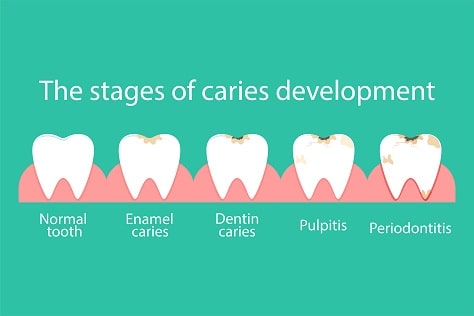Most people are aware that they need to brush their teeth at least twice daily. Some will also add flossing to their daily routine. Nevertheless, there are many who do not prioritize their oral health.
Brushing and flossing your teeth play a small but important part in your overall oral health regimen. Still, this may not be enough in the long run.
Caring for your oral hygiene and health is monumental. Here’s why:
A Reflection Of Your Overall Health
In the world of health and fitness, the mention of oral health care is often sidelined. Yet, there is a growing amount of evidence that links oral health to a person’s overall well-being.
This shouldn’t come as a surprise. Your mouth is an ecosystem where the bacteria thrive. In small quantities, these microorganisms are there to help with food digestion. However, with poor oral hygiene, bad bacteria can quickly grow and lead to infections and diseases.
In fact, the Canadian Dental Association has found out that seven out of ten Canadians develop gum disease at some point in their lives. Oral diseases like gum disease (periodontitis) are thought to contribute to critical illnesses like coronary heart disease, diabetes, and osteoporosis.
High sugary food encourages the growth of acid-producing bacteria. An excessive amount of acid found in the mouth may cause the gum to be inflamed, cause cavities, and put you at the risk of losing your teeth. Frequent brushing and flossing of teeth can help reduce this acid-forming bacteria from growing.
When left unattended, plaque will eventually develop around your gumline. This will harden and separate your gum from your teeth, increasing the possibility of infections. A sign that can help you to identify whether you have inflamed gums that bleed while brushing or flossing.
However, plaques cannot be fully removed by brushing and flossing. This can easily be remedied with regular scaling done by your local dentist. If you live in the western region of Ontario, you can visit a Waterloo dentist for help.

The Correlations between Oral and General Health
The overall well-being of an individual can be broken into two main categories: physical and mental-emotional health.
1. Physical Health
More studies still need to be made pertaining to the correlations between oral and general health. Nevertheless, current research has found many oral diseases that portray the same common risk factors as critical illness.
The mouth is also the start of the digestive system. When bacteria are allowed to grow and thrive, infections that occur in your mouth may travel into your digestive system and bloodstream. This may result in illnesses like Endocarditis and Cardiovascular disease where the arteries could be clogged due to oral bacteria.
On the other hand, diseases such as diabetes and HIV/AIDS will, in turn, affect your oral health. Due to the nature of these diseases, they lower down the body’s immune system. This will increase the chances of mouth infections.
Studies have shown that diabetic patients with gum disease have difficulties in controlling their blood sugar levels. Going for regular dental services can help in improving diabetic conditions.
2. Mental-Emotional Health
There’s a greater correlation between mental-emotional health and oral health than most people would think. Conditions like anxiety and depression can affect eating and living habits.
To cope with their situations, some people suffering from mental disorders might succumb to eating or drinking a high quantity of sugary foods. On the adverse side, some might have a loss of appetite, which leads to malnutrition. Both situations greatly impact dental health, such as the risk of tooth decay and cavities.
Consumption of substances like smoking, drinking alcohol, and drug abuse is also another coping mechanism that people may adopt. The long-term effect of consuming these vices may lead to gum disease or even oral cancer.
Steps to Improve Your Oral Well-Being
To decrease the chances of infections and diseases, having a consistent oral care routine is important.
1. Floss first before you brush your teeth.
2. Make sure you brush your teeth daily for at least two minutes, twice a day.
3. Use a soft-bristle toothbrush as this will be gentle to your gum.
4. Use fluoride-based toothpaste as it can help to strengthen your teeth.
5. Schedule a regular visit to your local dentistry for checkups and cleanings.
6. Consume a healthy diet low in sugar.
7. If possible, try to limit the consumption of tobacco and alcohol.
Conclusion
Your oral health is equally as important as your overall health. It’s imperative that you take good care of it from the start. Severe dental problems can be costly to fix. So, be sure to visit your local dentist for a periodic checkup. This will yield a higher return in the long run.


















